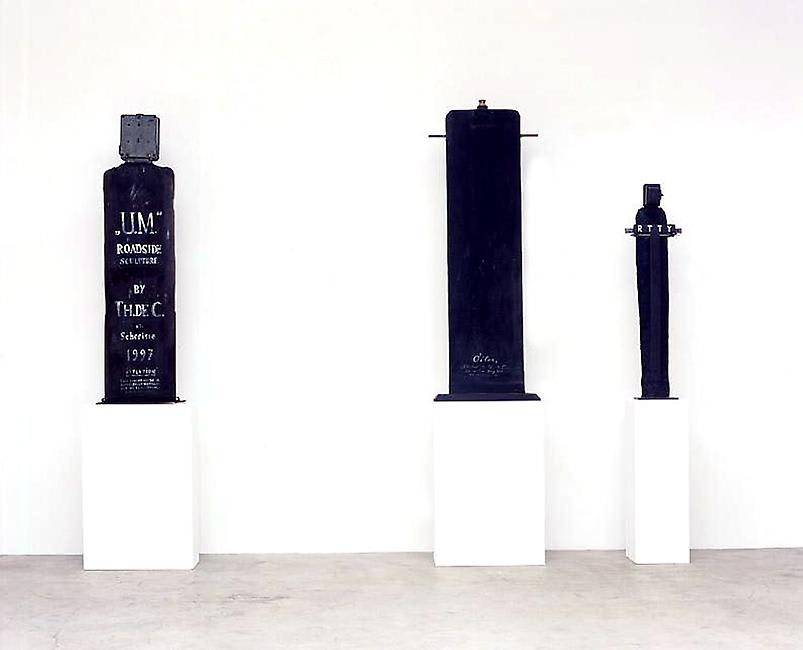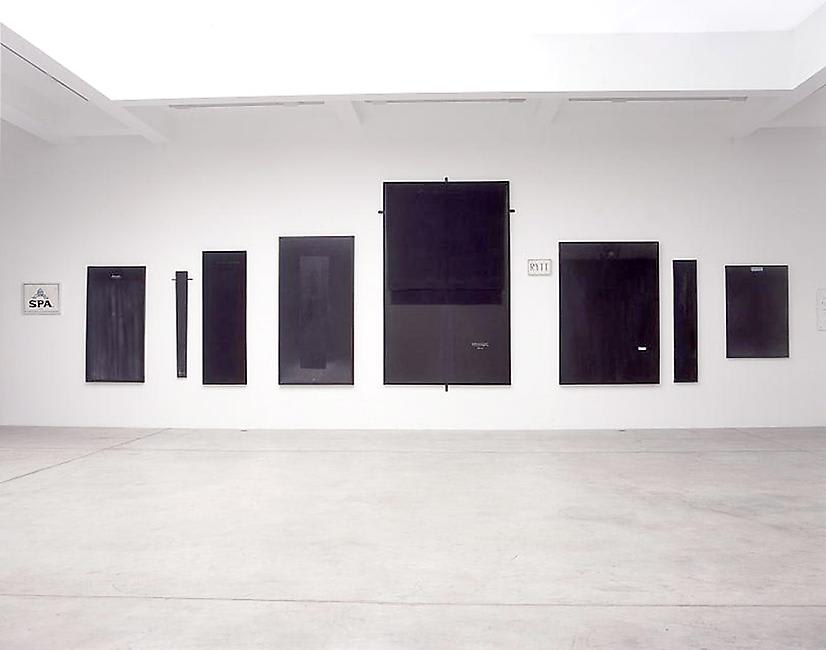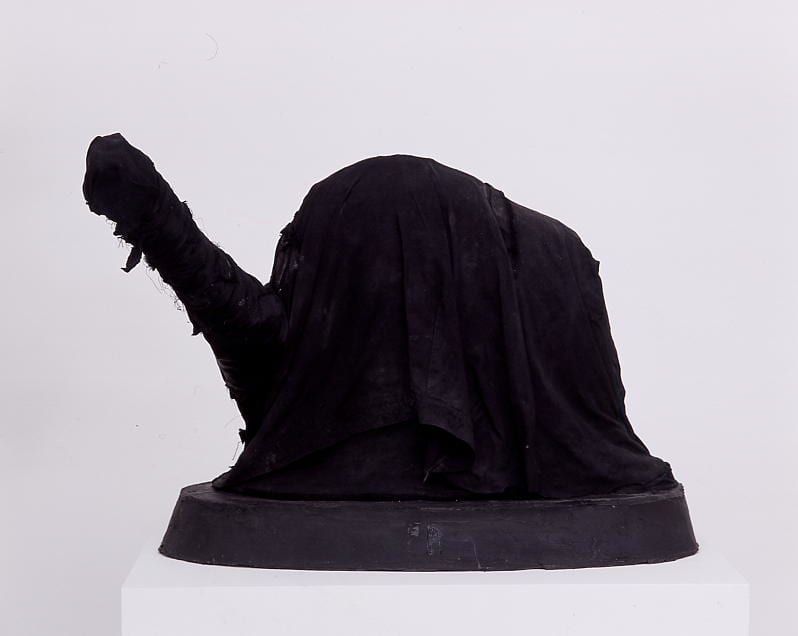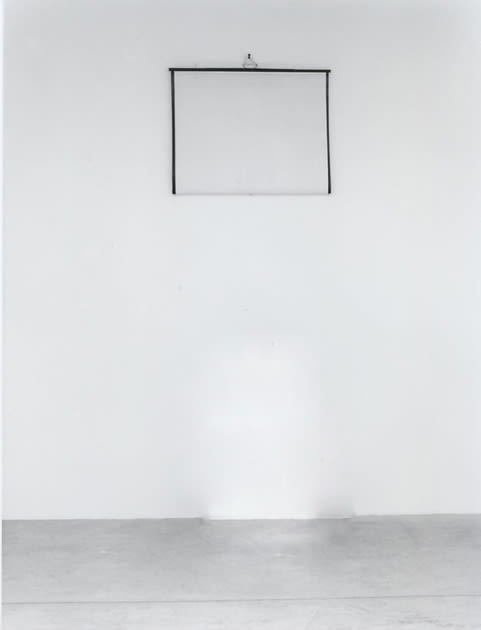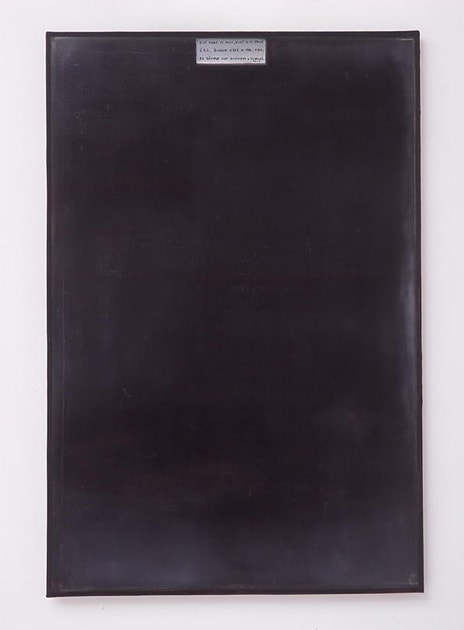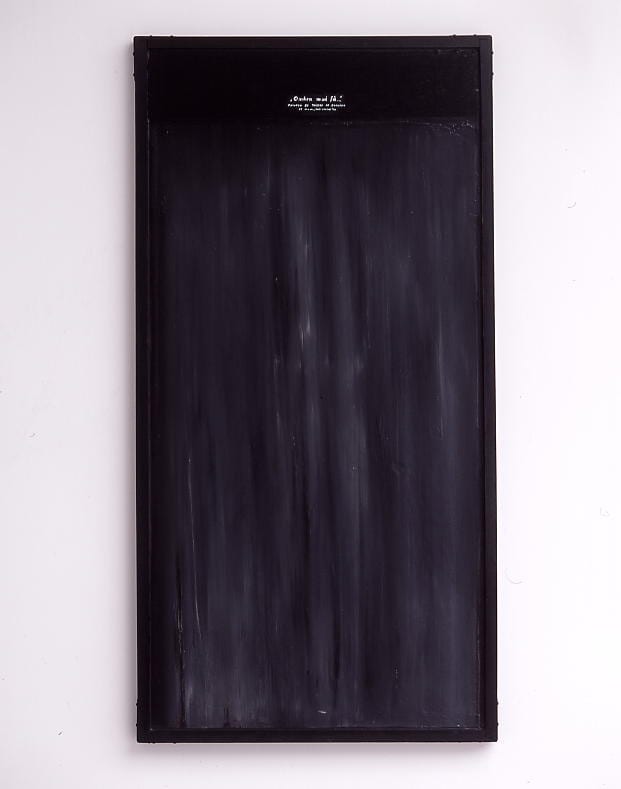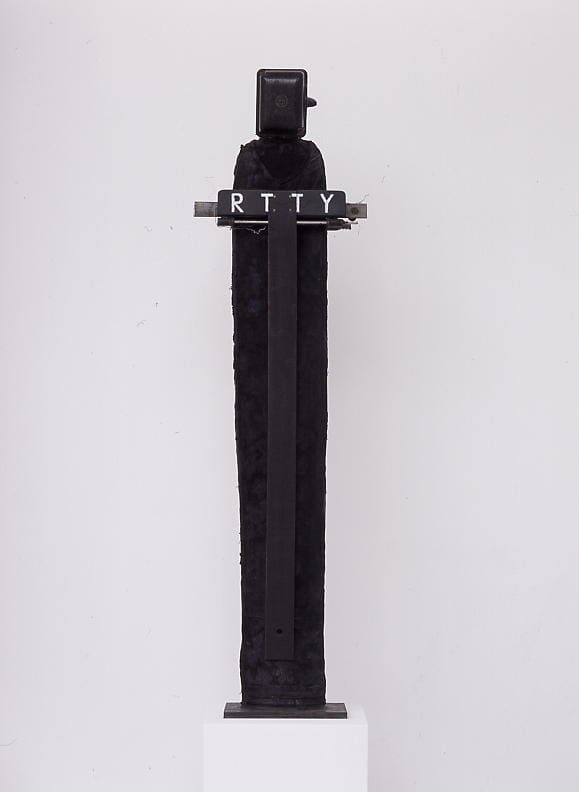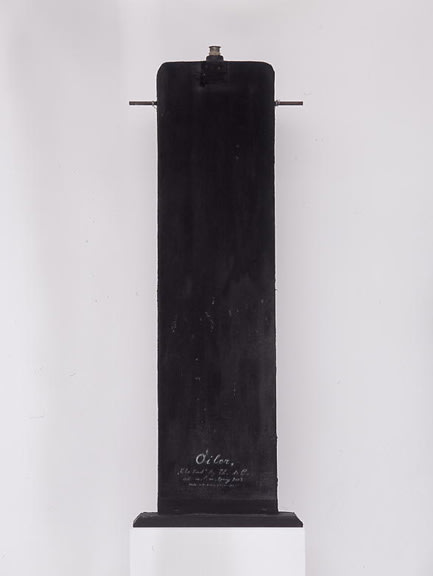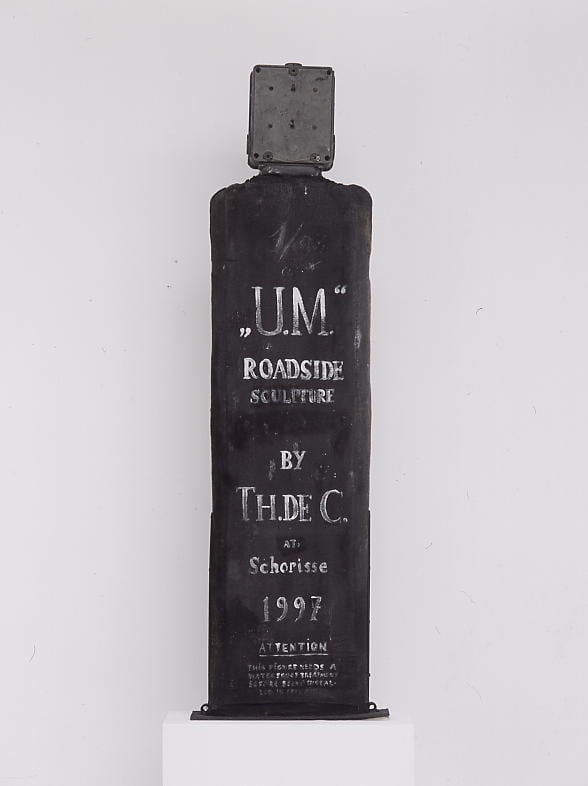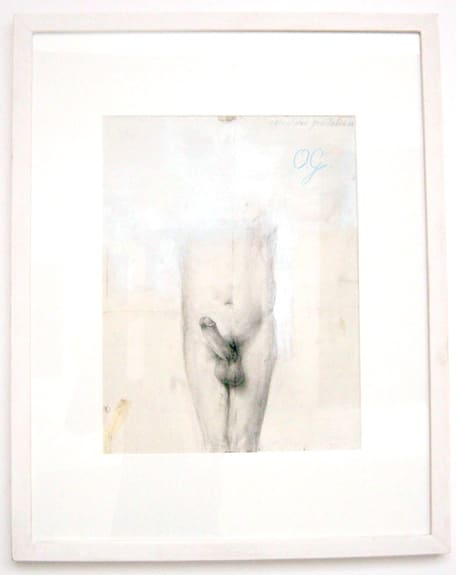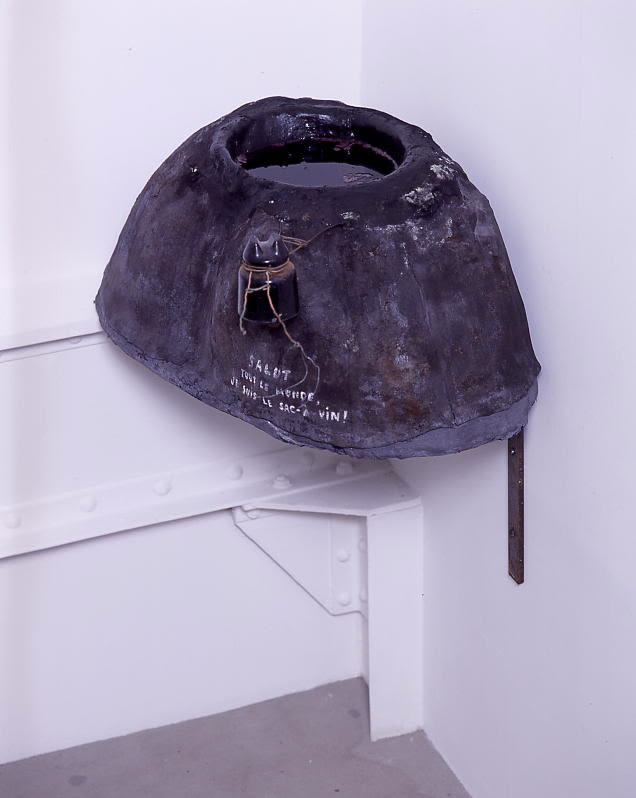Overview
In 1988 Thierry de Cordier was invited to participate in a Summer Exhibition taking place in several towns in the South of France. After visiting the small village of Puycelsi which is an old medieval village, Thierry de Cordier decided to install a sculpture that would be a kind of mannequin in a crucifixion form that would be a metaphor for the surrounding suffering and a way to summarize it in an image. The project was accepted.
The sculpture, all black, was completed in 1988 and installed. It brought many criticisms and during the night after the inauguration the sculpture was overthrown from the medieval fortified walls of the village. As there were no witnesses, the case was closed remarkably quickly.
A Legend
Notes on a show of Thierry de Cordier in Paris
In 1988 Thierry de Cordier was invited to participate in a Summer Exhibition taking place in several towns in the South of France. After visiting the small village of Puycelsi which is an old medieval village, Thierry de Cordier decided to install a sculpture that would be a kind of mannequin in a crucifixion form that would be a metaphor for the surrounding suffering and a way to summarize it in an image. The project was accepted.
The sculpture, all black, was completed in 1988 and installed. It brought many criticisms and during the night after the inauguration the sculpture was overthrown from the medieval fortified walls of the village. As there were no witnesses, the case was closed remarkably quickly.
It took a few months before it became apparent that the municipal committee had met urgently and secretly that night and decided unanimously to get rid of this disturbing sculpture in one way or another. In all the debris that was found, only part of the back could be identified. This fragment is the origin of the 'Black Back' series.
The works in this exhibition can be considered as some answers to local incidents. However, the artist was able to transpose this misfortune into an artistic, even theological motif.
Th. De C. himself speaks of deconstructive theology.
